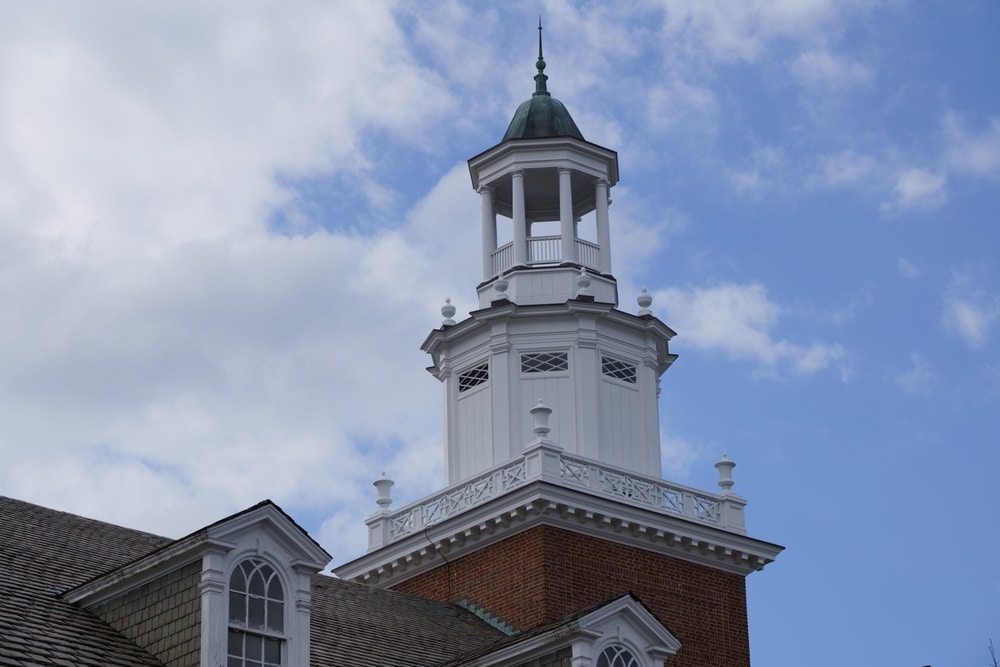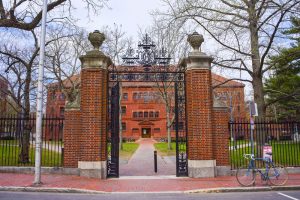Johns Hopkins vs Harvard: Which University Is Right for You?
Two prestigious institutions often compared to each other are Johns Hopkins vs Harvard. These universities are among the most well-known in the world, with a reputation for excellence in academics, research, and student life. Choosing between them can be a tough decision, so let’s take a closer look at what each university has to offer and determine which one is the best fit for you.
Introduction to Johns Hopkins and Harvard
Founded in Baltimore, Maryland in 1876, Johns Hopkins university is a private research institution known for its focus on science, technology, engineering, and mathematics (STEM) fields. Its notable alumni include 36 Nobel laureates, 3 Pulitzer Prize winners, and numerous Rhodes Scholars. Harvard university, on the other hand, was founded in Cambridge, Massachusetts in 1636 and is the oldest institution of higher education in the United States. It is a private Ivy League research university with a long history of academic excellence and has produced dozens of Nobel laureates, heads of states, and business leaders.
Both universities have a strong commitment to research and innovation. Johns Hopkins is home to several research centers, including the Johns Hopkins Applied Physics Laboratory and the Johns Hopkins Bloomberg School of Public Health. Harvard, on the other hand, has a vast research enterprise that spans across various fields, including medicine, law, business, and engineering. The university also has a strong focus on entrepreneurship and innovation, with several initiatives aimed at fostering innovation and supporting startups.
History and Background of Johns Hopkins University
Johns Hopkins‘ founder, philanthropist Johns Hopkins, was a Quaker who believed in the power of education to transform individuals and society. He left a bequest in his will to found a university and a hospital in Baltimore that would be dedicated to the advancement of knowledge and the improvement of human health.
The university opened in 1876 with just 3 faculties – Arts and Sciences, Medicine, and Music – and its first president, Daniel Coit Gilman, was a pioneering figure in the American higher education system. Over the decades, Johns Hopkins has grown and expanded its offerings to include numerous undergraduate and graduate programs in a wide range of fields.
Johns Hopkins University has a long-standing reputation for excellence in research, particularly in the fields of medicine, public health, and engineering. The university has been home to many groundbreaking discoveries, including the development of the first effective treatment for sickle cell anemia and the discovery of restriction enzymes, which revolutionized genetic engineering.
Johns Hopkins is also known for its commitment to community engagement and social justice. The university has a number of programs and initiatives aimed at addressing issues of inequality and promoting diversity and inclusion, both on campus and in the wider community.
History and background of Harvard university
Harvard university, on the other hand, has a much longer history. The institution was established by the colonial Massachusetts legislature and named after its first benefactor, clergyman John Harvard. It was initially envisioned as a training ground for ministers, but over time, it grew to become a comprehensive university.
Harvard’s alumni include numerous famous figures such as Barack Obama, Bill Gates, and Mark Zuckerberg, as well as many influential scholars, researchers, and artists. Today, Harvard is a global institution with campuses in Massachusetts and Allston, as well as a presence in numerous countries around the world.
Harvard has a rich academic history, with many notable achievements and contributions to various fields. For example, the university has produced 161 Nobel laureates, 18 Fields Medalists, and 14 Turing Award winners. Additionally, Harvard has played a significant role in shaping American politics and society, with many of its graduates going on to become influential leaders in government, business, and other fields.
Admission process at Johns Hopkins and Harvard
The admission process for both universities is highly competitive and relies on factors such as academic performance, extracurricular activities, essays, and letters of recommendation. Johns Hopkins and Harvard are both need-blind when evaluating applications, meaning that they do not take into account an applicant’s ability to pay when making admission decisions. Both schools also offer generous financial aid packages to eligible students.
Additionally, both universities also consider diversity as an important factor in their admission process. They strive to create a diverse student body, which includes students from different backgrounds, cultures, and experiences. This is reflected in their holistic approach to evaluating applications, where they consider not only an applicant’s academic achievements but also their personal qualities and experiences. Furthermore, both universities have dedicated resources and support systems for students from underrepresented communities to ensure their success and inclusion on campus.
Undergraduate programs offered at Johns Hopkins and Harvard
Johns Hopkins offers a wide range of undergraduate programs across its 9 schools, including the Krieger School of Arts and Sciences, the Whiting School of Engineering, and the Peabody Institute of Music. Students can choose from majors such as Biomedical Engineering, International Studies, and Writing Seminars. Harvard, on the other hand, has 12 degree-granting schools, including the Faculty of Arts and Sciences, the Harvard School of Engineering and Applied Sciences, and the Harvard Business School. Undergraduates can choose from majors such as Computer Science, Economics, and History and Literature.
At Johns Hopkins, students have the opportunity to participate in research projects and gain hands-on experience in their field of study. The university is known for its strong emphasis on research, and students can work alongside faculty members on projects ranging from cancer research to environmental studies. Harvard also offers research opportunities for undergraduates, with programs such as the Harvard College Research Program and the Harvard Stem Cell Institute Internship Program.
In addition to academic programs, both Johns Hopkins and Harvard offer a variety of extracurricular activities for students. At Johns Hopkins, students can participate in over 400 student organizations, including clubs focused on community service, cultural interests, and sports. Harvard also has a wide range of student organizations, including clubs focused on entrepreneurship, social justice, and the arts. Both universities also have strong athletic programs, with opportunities for students to participate in varsity, club, and intramural sports.
Graduate programs offered at Johns Hopkins and Harvard
Both universities offer numerous graduate programs across a wide range of fields, from public health to law to business. Johns Hopkins is particularly well-known for its graduate programs in medicine, nursing, and public health, while Harvard is renowned for its graduate programs in law, business, and government.
In addition to these fields, both universities also offer graduate programs in the humanities, social sciences, and natural sciences. At Johns Hopkins, graduate students can pursue degrees in fields such as history, philosophy, and biology, while at Harvard, graduate students can study subjects such as psychology, sociology, and physics.
Furthermore, both universities have a strong focus on research and offer numerous opportunities for graduate students to engage in cutting-edge research projects. At Johns Hopkins, graduate students can work with renowned researchers in fields such as neuroscience and cancer biology, while at Harvard, graduate students can collaborate with experts in areas such as artificial intelligence and environmental science.
Faculty and student ratio comparison between Johns Hopkins and Harvard
Johns Hopkins has a student-to-faculty ratio of 7:1, which means that students can expect to have personalized attention from professors and researchers. Harvard’s ratio is slightly higher at 9:1, but still offers a level of academic support that is higher than many other universities.
However, it is important to note that the student-to-faculty ratio is not the only factor that determines the quality of education at a university. Other factors such as the qualifications and experience of the faculty, the resources available to students, and the overall academic culture also play a significant role. Both Johns Hopkins and Harvard are renowned for their academic excellence and offer a wide range of opportunities for students to engage in research, internships, and other experiential learning opportunities.
Campus life comparison between Johns Hopkins and Harvard
Johns Hopkins has a vibrant campus life, with more than 400 student organizations and clubs covering areas such as music, sports, politics, and community service. Harvard also has a rich campus life, with more than 450 student-run organizations and a thriving arts and cultural scene.
However, one notable difference between the two universities is the size of their campuses. Johns Hopkins has a relatively compact campus, which fosters a strong sense of community and allows for easy navigation between buildings. In contrast, Harvard’s campus is much larger and spread out, which can make it more challenging to get around and find your way. Despite this difference, both universities offer a diverse range of extracurricular activities and opportunities for students to get involved and make the most of their college experience.
Accommodation options at Johns Hopkins and Harvard
Both universities offer a variety of housing options for students, including traditional dormitories, apartment-style living, and residential colleges. At Johns Hopkins, students are guaranteed housing for their first and second years, while at Harvard, all undergraduate students are required to live on campus for their first year.
In addition to the on-campus housing options, both universities also have resources available to help students find off-campus housing. At Johns Hopkins, the Off-Campus Housing Assistance (OCHA) program provides students with information on rental properties, roommate matching, and lease reviews. Similarly, Harvard’s Off-Campus Housing Service (OCHS) offers a database of available apartments and houses, as well as resources for navigating the rental process.
Johns Hopkins vs Harvard: Research opportunities
Research is a cornerstone of both Johns Hopkins and Harvard’s academic programs, and undergraduates have ample opportunity to participate in research projects alongside faculty members and graduate students. Both universities offer numerous research centers and institutes focused on topics such as public health, international relations, and the environment.
At Johns Hopkins, students can participate in research through programs such as the Provost’s Undergraduate Research Awards and the Woodrow Wilson Research Fellowship. These programs provide funding and support for students to conduct independent research projects in a variety of fields, including engineering, social sciences, and humanities.
Harvard also offers a range of research opportunities for undergraduates, including the Harvard College Research Program and the Harvard Stem Cell Institute Internship Program. These programs allow students to work with faculty members on cutting-edge research projects in fields such as biology, psychology, and economics.
Sports programs comparison between Johns Hopkins and Harvard
At Johns Hopkins, sports are an important part of campus life, with more than 24 varsity sports teams competing at the Division III level. Harvard is also known for its strong athletic program, with more than 40 varsity sports teams competing at the Division I level.
However, despite the difference in the number of varsity sports teams, both universities offer a wide range of intramural and club sports for students who are not on varsity teams. At Johns Hopkins, students can participate in activities such as ultimate frisbee, dodgeball, and flag football. Similarly, Harvard offers a variety of intramural sports including basketball, soccer, and volleyball. These programs provide opportunities for students to stay active and engaged in sports, regardless of their skill level or previous experience.
Career prospects after graduating from Johns Hopkins or Harvard
Graduating from Johns Hopkins or Harvard opens up numerous career opportunities, both in the private and public sectors. Graduates of both institutions are highly sought after by employers, with starting salaries that are often among the highest in the country. Students can take advantage of numerous career counseling services and networking opportunities to prepare for their post-graduate careers.
Additionally, both Johns Hopkins and Harvard have strong alumni networks that can provide valuable connections and job leads. Many graduates also go on to pursue advanced degrees, such as law or medicine, further expanding their career options. Furthermore, both institutions offer a wide range of academic programs, allowing students to specialize in fields such as engineering, business, or the arts, which can lead to even more diverse career paths.
Johns Hopkins vs Harvard: Alumni network
Both universities have highly active alumni networks, providing students and graduates with opportunities to connect with former students and tap into their expertise and experience. Graduates of both universities are often able to leverage their alumni connections to secure internships, jobs, and other career-related opportunities.
However, there are some differences between the alumni networks of Johns Hopkins and Harvard. For example, Harvard’s alumni network is larger and more global, with alumni chapters and clubs in cities all over the world. This can be an advantage for graduates who are looking to network and make connections outside of the United States.
On the other hand, Johns Hopkins’ alumni network is known for its strong ties to the healthcare industry. Many alumni work in healthcare-related fields, and the university has partnerships with hospitals and research institutions around the world. This can be a valuable resource for graduates who are interested in pursuing careers in healthcare or related fields.
Johns Hopkins vs Harvard: Tuition fees
Attending either Johns Hopkins or Harvard can be a significant financial investment, as both universities have high tuition fees. Johns Hopkins’ annual tuition and fees for the 2021-2022 academic year is $59,750, while Harvard’s is $55,880. Both universities, however, offer generous financial aid packages to eligible students.
It is important to note that the cost of attending a university goes beyond just tuition and fees. Students must also consider the cost of living, textbooks, and other expenses. According to a study by College Board, the average cost of room and board at private universities like Johns Hopkins and Harvard is around $13,000 per year.
Despite the high costs, attending a prestigious university like Johns Hopkins or Harvard can have significant benefits in terms of career opportunities and earning potential. Graduates from these universities often have access to top employers and higher salaries compared to graduates from other universities.
Johns Hopkins vs Harvard: Financial aid options
Both universities offer a wide range of financial aid options for students, including scholarships, grants, work-study programs, and loans. Students can apply for aid by submitting the Free Application for Federal Student Aid (FAFSA) or the College Scholarship Service (CSS) Profile, depending on the university’s requirements. Both universities are committed to making sure that financial aid is accessible to all students who need it.
In addition to the standard financial aid options, both universities also offer specialized aid programs for certain groups of students. For example, there are programs specifically for first-generation college students, students from low-income families, and students pursuing certain majors or career paths. These programs may offer additional funding, mentorship opportunities, or other resources to help students succeed. It’s important for students to research and apply for all the financial aid options available to them, including these specialized programs.
Johns Hopkins vs Harvard: International student community
Both Johns Hopkins and Harvard have highly diverse international student communities, with students from all over the world coming to study in the United States. Both universities offer numerous resources and support services to help international students adjust to life in the United States, including language courses, cultural events, and mentorship programs.
However, there are some differences between the international student communities at Johns Hopkins and Harvard. At Johns Hopkins, there is a larger percentage of international students pursuing degrees in STEM fields, such as engineering and computer science. On the other hand, Harvard has a larger percentage of international students pursuing degrees in the humanities and social sciences.
In addition, the cultural events offered at each university differ. Johns Hopkins hosts an annual International Festival, where students can showcase their cultures through food, music, and dance. Harvard, on the other hand, has a Global Voices Lecture Series, where international scholars and leaders are invited to speak on global issues and share their perspectives with the Harvard community.
Johns Hopkins vs Harvard: Student organizations
Both universities have highly active student organizations covering a wide range of interests and fields, from political activism to community service to sports. Joining a student organization can be an excellent way to meet new people, explore new areas of interest, and gain valuable leadership experience.
At Johns Hopkins, some of the most popular student organizations include the Black Student Union, the International Studies Leadership Council, and the Hopkins Feminists. These groups offer opportunities for students to engage in meaningful discussions and activities related to their interests, while also promoting diversity and inclusion on campus.
Meanwhile, at Harvard, students can join organizations such as the Harvard Crimson newspaper, the Harvard Political Review, and the Harvard College Consulting Group. These groups provide students with opportunities to develop their skills in journalism, politics, and business, while also contributing to the wider Harvard community.
Johns Hopkins vs Harvard: Campus safety measures
Both Johns Hopkins and Harvard take campus safety very seriously and have implemented numerous measures to ensure the safety and well-being of their students and staff. These measures include campus security patrols, emergency alert systems, mental health resources, and crime prevention programs. Students can feel confident that they will be well-supported and protected while they are on campus.
Additionally, both universities have implemented strict protocols for visitors and guests on campus. Visitors must register with the university and provide identification before being allowed on campus. This helps to ensure that only authorized individuals are on campus and reduces the risk of unauthorized access.
Furthermore, both universities have established partnerships with local law enforcement agencies to enhance campus safety. This includes regular communication and collaboration with police departments to address any safety concerns and to coordinate emergency response efforts if necessary.
Conclusion: Which university is the best fit for you?
Choosing between Johns Hopkins and Harvard is a difficult decision, as both universities offer numerous advantages and opportunities. Ultimately, the decision will depend on your individual interests, academic and career goals, and personal preferences. It’s important to research both universities thoroughly, talk to current students and alumni, and visit the campuses to see which one feels like the best fit for you. Whether you choose to attend Johns Hopkins or Harvard, you can be confident that you will be receiving a world-class education and a transformative experience that will prepare you for a successful future.
It’s also worth considering the location of each university. Johns Hopkins is located in Baltimore, Maryland, which offers a vibrant city atmosphere and easy access to Washington D.C. Harvard, on the other hand, is located in Cambridge, Massachusetts, which is a bustling college town just outside of Boston. Depending on your preferences, one location may be more appealing than the other and could ultimately sway your decision.
How AdmissionSight Can Help You With College Admissions
AdmissionSight is a college consulting firm that provides personalized assistance to students throughout the college admissions process. Here are some ways that AdmissionSight can help you:
Admissions strategy: AdmissionSight can help you develop a strategic plan for your college application process. Our professional consultants can assist with identifying schools that are a good fit for your academic, extracurricular, and personal goals and help you plan and prioritize your application strategy.
Application review: AdmissionSight can review your application and provide feedback on how to improve it. We can offer suggestions on making your application stand out and highlighting your strengths and unique qualities.
Essay coaching: AdmissionSight can help you craft compelling essays that showcase your personality, goals, and achievements. We can guide you through the essay writing process and provide feedback on your drafts to help you refine your writing.
Interview preparation: AdmissionSight can provide interview coaching to help you feel confident and prepared for college interviews. Our experts can offer tips on how to present yourself professionally and how to answer common interview questions.
Extracurricular planning: AdmissionSight can help you plan and develop your extracurricular activities to make them more impactful and meaningful. We can suggest activities that align with your interests and goals and provide guidance on demonstrating your leadership and initiative.
Overall, AdmissionSight can provide valuable guidance and support throughout the college admissions process to help you maximize your chances of getting accepted into the college of your choice.
With a high success rate of over 75%, we have built a strong network in the past decade. Book an initial consultation today, free of charge!













































